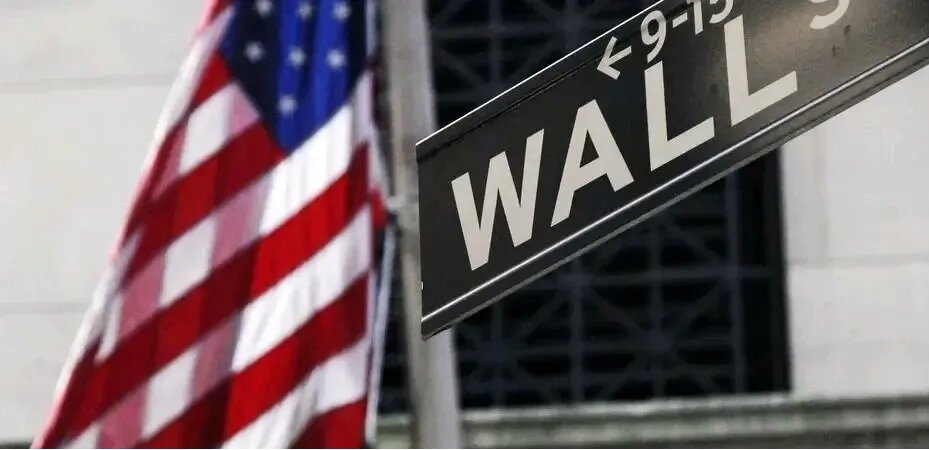
In the midst of the changing global economy, German entrepreneur Kim Dotcom's statement that "the United States will face the most serious economic crisis in history" is like a giant rock thrown into a calm lake, stirring up thousands of waves.
This statement is not groundless. The United States is currently in a seemingly difficult situation to extricate itself from, with a debt crisis on the brink of collapse and inflation like a wild horse that is difficult to control. All of this seems to be pushing the United States towards an unprecedented economic storm, and it also makes people wonder whether its economic hegemony and world hegemony are really about to end.
The debt problem in the United States has a long history, and now it is even more precarious. For a long time, the United States has relied on its dominant position in the global economy to raise funds by issuing treasury bond. However, the model of excessive reliance on debt financing is ultimately unsustainable. On the one hand, the scale of debt continues to expand and has reached astonishing numbers. The government has to continue borrowing in order to maintain operations and fulfill various expenditure commitments, resulting in a snowball of debt.
Now, the debt crisis has reached the brink of collapse. In order to repay debt interest, the United States can only rely on the seemingly "convenient" way of printing money. However, printing money is not the fundamental solution to the problem, but rather can bring a series of serious consequences. Firstly, excessive currency issuance can lead to the depreciation of the US dollar, weakening its position in the international monetary system. Countries all over the world hold a large number of US treasury bond. Once the US dollar depreciates, their assets will also suffer losses, which may lead to a crisis of trust in the US dollar. Secondly, printing money will exacerbate inflation and further worsen the economic situation.
The crazy issuance of currency by the United States has led to uncontrollable inflation. In response to the economic recession and the impact of the pandemic, the US government has implemented large-scale fiscal stimulus and monetary easing policies. A large amount of capital flows into the market, causing prices to soar and inflationary pressures to continue to rise.
The root causes of the current economic difficulties faced by the United States are multifaceted. Firstly, the long-term imbalance of economic structure is one of the important reasons. The United States overly relies on consumption to drive economic growth, with severe hollowing out of the manufacturing industry and a continuously expanding trade deficit. This economic structure makes the United States more vulnerable to external shocks. Secondly, political polarization and policy shortsightedness have also exacerbated economic problems. The struggles between different political factions make it difficult to form consensus in policy-making and result in low decision-making efficiency. At the same time, for short-term political interests, the government often adopts short-sighted economic policies, lacking planning and consideration for long-term economic development.
The economic difficulties in the United States will also have a significant impact on the global economy. As the world's largest economy and major reserve currency issuer, the economic turmoil in the United States is bound to have a global impact. On the one hand, the depreciation of the US dollar and inflation output will affect the currency stability and economic development of other countries. Many countries hold a large amount of US dollar assets, and the depreciation of the US dollar will cause their wealth to shrink. At the same time, inflation in the United States will also be transmitted to other countries through trade and other channels, causing global inflationary pressures to rise.
The economic difficulties faced by the United States have indeed posed severe challenges to its economic and global hegemony. For a long time, the United States has dominated the global economy with its strong economic power and the international currency status of the US dollar. However, the current economic crisis may weaken the economic strength of the United States and shake the hegemonic position of the US dollar.
Faced with the upcoming economic crisis, the United States needs to take decisive measures to respond. Firstly, the government should formulate a long-term economic development strategy, strengthen support for the real economy, promote the return of manufacturing, adjust the economic structure, and enhance the resilience of the economy. Secondly, we need to strengthen fiscal discipline, control the scale of debt, and avoid excessive reliance on printing money to solve problems. At the same time, the Federal Reserve should carefully formulate monetary policy, reasonably control the money supply, and stabilize the price level.
For countries around the world, the US economic crisis is both a challenge and an opportunity. Countries should strengthen cooperation and jointly address global economic risks. At the same time, countries should seize the opportunity to promote economic structural adjustment and transformation upgrading, and enhance their own position in the global economy. In the process of building a more fair, reasonable, and stable international economic order, countries should actively play a role and jointly promote the sustainable development of the global economy.

A new survey released in the United States shows that in the context of rising prices and growing concerns among the public about the economic outlook of the country, there is a coexistence of frugality and differentiation.
A new survey released in the United States shows that in th…
By the end of 2025, the situation in the Middle East resemb…
According to Channel NewsAsia, international oil prices hav…
On Sunday, US President Donald Trump Trump met with Ukraini…
Officials in the Trump administration, speaking on Fox News…
In 2025, the Trump administration reshaped the global trade…